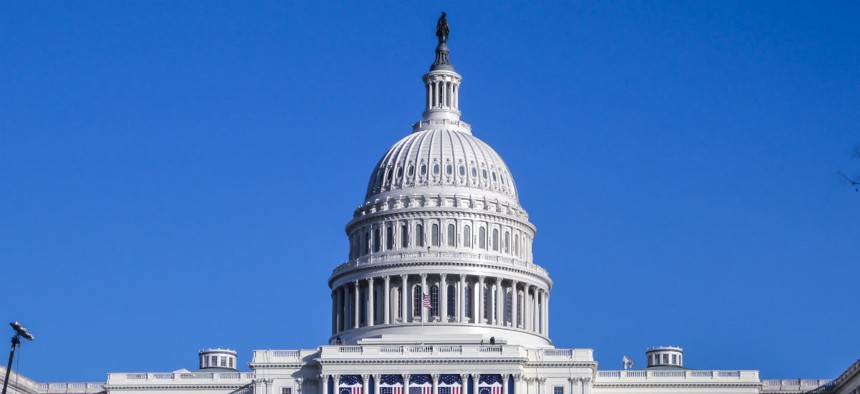Tip for Incoming Political Appointees: Don’t Ignore IGs
Report says the next presidential administration may need to be educated on the role and value of the watchdogs.
Incoming political appointees in the next presidential administration may need coaching on the value, independence and multi-hatted responsibilities of inspectors general, according to a new report.
“IGs have several ‘bosses’— the agency leader, Congress, the president and the American public,” said the paper released Wednesday night by the nonprofit Partnership for Public Service and Grant Thornton Public Sector.
“New agency political appointees may not realize the full obligations of the IGs, perhaps thinking they operate like private-sector internal auditors who report directly and are accountable solely to the top executive.”
Based on interviews with dozens of IGs, agencies and congressional staff, the analysts said that “new agency leaders and the incoming White House can use the inspectors general to improve government management.”
The report comes at a time when Congress is considering a House-passed bill to enhance the powers of IGs to obtain documents that some agency leaders withhold on privacy grounds. As all agencies and the two presidential campaigns rev up the transition process, Glenn Fine, the inspector general at the Defense Department, was just named as transition working group coordinating head for the watchdog community by Michael Horowitz, the Justice Department IG who heads the Council of the Inspectors General on Integrity and Efficiency.
The next president will be required to fill some 10 inspector general vacancies, and the report recommended that he or she act fast. The Obama administration, analysts noted, fell behind on naming qualified candidates, as shown in the tracking system kept by the nonprofit Project on Government Oversight. Comparisons of confirmation rates from past administrations showed that the main cause for vacancies was “not in the slowness of the Senate confirmation process,” the new report said.
One of the report’s examples of the important work of IGs involved the major data breach of governmentwide personnel files announced by the Office of Personnel Management in June 2015. “The agency’s vulnerability to such an attack was no surprise,” the report said. “Between 2007 and 2014, OPM’s inspector general had issued three reports on the agency’s lack of information technology security policies and procedures—calling that a ‘material weakness’—and recommending a centralized security management structure to enforce IT security policies.”
Another example of the value of inspectors general comes in innovations. “When David Williams was the IG at the U.S. Postal Service, he employed researchers in addition to the audit and investigation staff,” noted the Partnership’s report.
“They came up with innovative ideas for the future of mail service, realizing the risks technology presents to the viability of paper mail and the existence of post offices. For example, he proposed that the Postal Service start offering paid advertisement space on the side of postal trucks as a way to increase revenue to compensate for the decline in mail volume.”
The tricky question of how IGs can assert their independence and meet obligations to Congress while cooperating with agency heads to improve functions requires negotiating. The set-up “makes it hard to engage in a team-oriented, let’s figure out where the problems are and fix them approach,” one IG said. Transportation Department IG Calvin Scovel III, by contrast, said it is “fairly easy to thread the needle because all of us know that independence will take priority.”
Another suggested, “The department should not find any surprises in the media or from its IG. The reason I like to limit surprises is because I need the agency to make the changes that need to be made.”
IGs can also help agencies by issuing realistic, actionable recommendations that factor in available resources, the report recommended. “The key is not to issue contentious reports and get a contentious response, but to get people in a room together to discuss recommendations that will achieve positive outcomes,” one IG said. A former executive at a major department emphasized that IGs not only have a responsibility to highlight problems, but to also “properly define success for the agency.”
Many IGs complained that Congress has been mandating too many reviews and reports by IGs without increasing their staffs or budgets.
And, the report added, “In the next administration, it would be helpful if the Presidential Personnel Office makes full use of the council’s list of qualified candidates for open IG positions, stays updated on new IG vacancies and sets a process in motion to fill IG positions as quickly as possible.”








